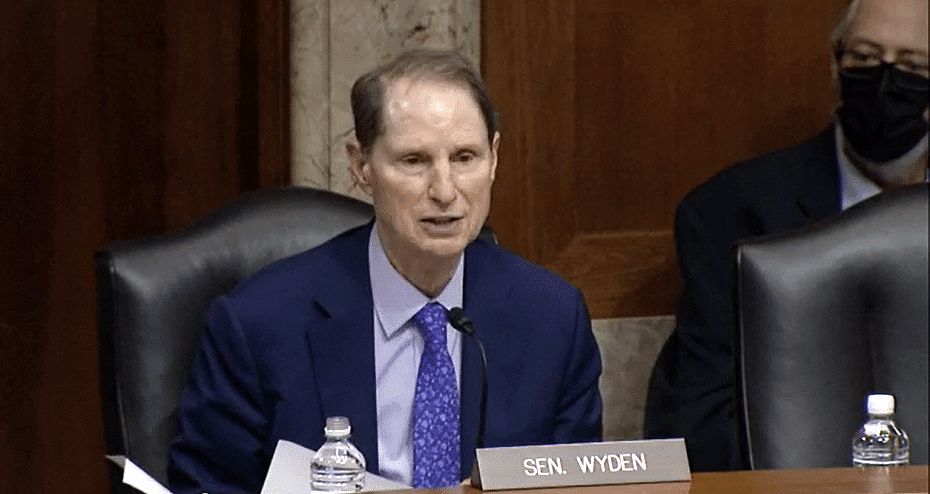Federal Bill to Increase Effectiveness of Restoration & Conservation Takes Critical Next Step
June 8, 2022
The Freshwater Trust (TFT) is proud to report that one of the bills it has been a part of developing in collaboration with U.S. Sen. Ron Wyden (D-OR) recently made it to a hearing.
Held May 25, the hearing was hosted by the U.S. Senate Energy and Natural Resources Subcommittee on Water and Power and reviewed 16 bills related to drought and watershed health. Ours, the Watershed Results Act (S. 3539), would provide the necessary financial and management tools to expedite and more effectively provide measurable environmental outcomes for watersheds through the greater use of analytics for prioritization of projects and increased streamlining and coordination of funding between federal agencies and among public and private stakeholders.
Camille Touton, Commissioner of the Bureau of Reclamation (BOR), a lead agency in the bill’s development, testified that it “let[s] science lead.” Touton also submitted a written statement to the Subcommittee, stating the BOR’s support and interest in working with the bill sponsor and the Committee to “identify any opportunities to support collaborative and science-based efforts.”
Wyden also stated that WRA will “use the best available science and expertise to identify and implement the most cost-effective and high-impact restoration activities for watersheds.” This is critical because drought-ridden communities cannot afford to wait any long for a solution. The current Western mega-drought is now the driest period in 1,200 years, and future droughts in most U.S. regions are projected to be stronger and last longer.
TFT knows that the current funding and implementation system was not built for the urgency or size of our current water challenges. Federal funding for water quality and quantity improvements nationwide is currently siloed, fragmented, and slow. This sector also largely operates without technology that could guarantee restoration and conservation projects are prioritized for maximum impact and deployed in coordination with other efforts. Fortunately, the tools for overcoming these challenges already exist, and this bill would help build a new framework.
The Watershed Results Act provides that framework through three main components: a coordinated approach that integrates and leverages separated but interrelated conservation funding sources; use of precision watershed analytics to quickly identify the best combination of projects to invest in; and a streamlined purchasing system that rapidly delivers funds to the ground with much less friction.
As stated in our testimony, “The WRA approach would drive more benefits into underserved rural areas with health and income challenges, help generate durable and enriching rural jobs, alleviate municipal ratepayer pressure—including on vulnerable communities, and provide more financial options for farmers as they attempt to grow more food with less water.”
The Watershed Results Act received significant support during the hearing. However, there will be additional hurdles to overcome before it is enacted. To help get the bill to the floor, we’ll continue to work with Senators, Committees, Federal agencies, and local communities. We’ll also continue to work with Representatives to introduce the WRA in the House.
You can read TFT’s submitted testimony or watch a recording of the hearing.
Image source: U.S. Senate Energy and Natural Resources Subcommittee
#Congressional testimony #Energy and Natural Resources Committee #watershed restoration

